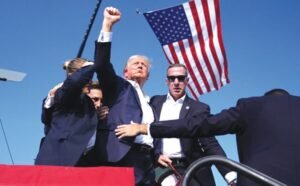
Minister of Ernergy, Matthew Opoku Prempeh
By Opare Gyan
The National Inspectorate Board has been operationalised, staffed, and provided with infrastructural and technical supports to enable it carry out its mandate. With these resources, the National Inspectorate Board has been able to digitise its data collection system, built a secure and comprehensive database for schools’ inspection and trained a team of inspectors.
Manuals were prepared for basic schools and 80 per cent of SHSs have coordinators. Same is planned for all school.
Faith-Based Organisations (FBOs) were also engaged and MoU drafted and was under review.
Construction of 163 Kindergartens awarded out of which 77 have been completed to date.
Previously, teachers who upgraded their qualifications and skills were not recognised and promoted on time; a divorce from hitherto several years of bureaucratic delays.
Due to new reforms, now:
- The waiting period before promotion of teachers who upgrade their qualifications and skills is now halved to 2 years. Waiting period for all others is 4 Years.
- For the first time in history, teachers are being paid a professional teachers allowance.
- TVET Qualification Framework developed.
- 80 institutions accredited to run Competency Based Training (CBT) programmes.
- Engaging Technical Universities to run CBTs.
- To support TVET education, we are building 32 state-of-the-art TVET centres, and
- A Basic STEM (B-STEM) programme to provide science labs in all basic schools to enhance the teaching of STEM subjects from an early age has been rolled out.
ICT is now compulsory in all Teacher Training Colleges.
- To date 313,250 basic school students have been introduced to basic coding
- Coding introduced at 25 SHSs and equipment supplies in progress
- A US$1.5B loan, of which US$500M has been disbursed, has been secured on the back of GETFund to develop educational infrastructure. Massive infrastructure development across educational institutions currently ongoing
- Completion of the construction and commissioning of Phase I of the Somanya campus of the University of Environment and Sustainable Development (UESD). Funding for Phase II of the campus has been secure and work commenced.
An agreement has been reached between UNOPS and the Government to construct 100,000 housing units for teachers and other education professionals.
Technology
Technology has been incorporated in the curriculum and technology firms have been engaged to assist in delivery. iBox education portals have been installed in 125 Senior High Schools.
Contract has been awarded to provide free Wi-Fi connectivity to all 722 SHSs, 46 Colleges of Education (CoEs), 16 Regional Offices, and 260 District Education Offices.
Research & Innovation Fund Bill has been gazetted.
Inclusive Education Policy has been adopted, and teacher training curricula covers inclusive education.
Twenty-two Bilingual Schools have been established; six Colleges of Education equipped with French Labs & Resource Centres; 54 SHSs equipped with French Language Resource Centres, and primary 4-6 French language curriculums developed.
Curriculum has been approved and rolled out. Discussions are ongoing for distribution of tablets to JHS and SHS students.
Under an ongoing programme, expanded the network of libraries from 61 to 72 as at March 2020, and have renovated over 50 per cent of the existing libraries. A digital platform for accessing library content has been activated.
The three-month pay policy for newly-recruited teachers has been abolished, and under Dr. Prempeh all legacy arrears were cleared.
The period of staying on a grade before consideration for promotion for teachers who upgrade their qualifications and skills is now halved to two years.
Construction of 20 Science, Technology, Engineering, Arts and Mathematics (STEAM) centres across the country are ongoing.
Capitation grant was by 122 per cent from GH¢4.5 per pupil to GH¢10 per pupil for Primary Schools.
Government has procured 1,190 vehicles to Senior High Schools made up of 350 buses and 840 pickups.
Under this project:
- 2.3 million children in 260 Districts will benefit
- 70,000+ out of school children targeted to be brought back on track
- 76,000 teachers’ capacity training in new curriculum and teaching methods
- School management committees to be trained in effective school management
- School heads trained in instructional leadership and accountability
- Circuit Supervisors will become School Improvement Officers, and
- 10,000 schools have been selected for the first phase
Recognition
Dr Prempeh’s hard work, dedication and commitment towards the sector he handled from 2017 to 2021 were recognized on several platforms as he was honoured and awarded accordingly.
For two years running, he was adjudged the best minister by his own government, through monitoring and evaluation scheme put together by the Ministry of Monitoring and Evaluation headed by Dr Anthony Akoto Osei.
The private sector also on numerous occasions honoured the immediate-past Minister of Education for improving the education sector and inspiring the youth.
The last two of such awards to Dr Prempeh were given to him by the Young Professionals and Youth Coalition (YPYC) and T.W.A.R.M Business Leadership awards.
The honest truth is Dr Prempreh would not be the last person to be the Minister of Education, but he would be remembered as someone without any background as educationist who made history at the Ministry of Education with how he helped in growing Ghana’s education sector.







